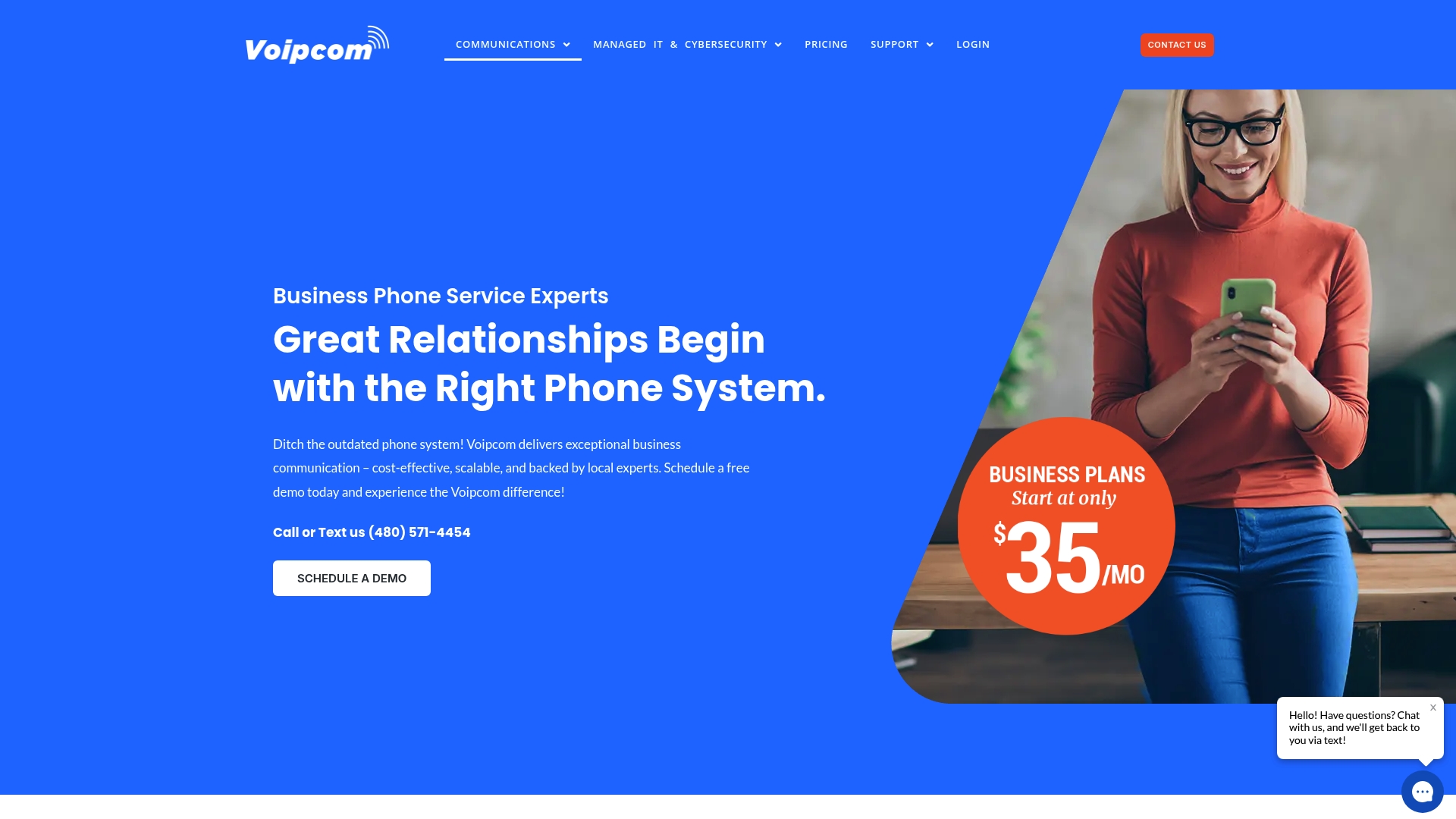Nearly 98% of all SMS messages are opened within three minutes, making business texting one of the fastest ways to capture attention. Companies today need reliable, personal, and direct communication to keep up with customer demands and fast-moving operations. Business SMS goes beyond casual texting by offering advanced features that support real-time updates, customer engagement, and secure, trackable conversations that drive results.
Table of Contents
- Defining Business SMS And Core Concepts
- Types Of Business SMS And Messaging Options
- How Business SMS Works For Modern Organizations
- Compliance, Security, And Legal Considerations
- Benefits And Common Use Cases For SMBs
- Comparing Business SMS To Alternatives
Key Takeaways
| Point | Details |
|---|---|
| Business SMS as a Strategic Tool | Business SMS enables organizations to communicate directly and personally with customers through structured messaging platforms, enhancing engagement and operational effectiveness. |
| Variety of Messaging Types | Different SMS types such as A2P, P2A, and transactional SMS offer tailored communication strategies that meet diverse business needs. |
| Compliance and Legal Considerations | Obtaining customer consent and ensuring data protection are essential for the legal use of business SMS, emphasizing proactive compliance management. |
| Comparative Advantages of SMS | SMS stands out for its immediacy, direct reach, and high engagement rates, making it a preferred choice for urgent communications over other channels like email and instant messaging. |
Defining Business SMS and Core Concepts
Business SMS represents a strategic communication tool that allows organizations to send text messages directly to customers, employees, and stakeholders through professional messaging platforms. According to Santa Clara University, SMS messaging serves as a powerful channel for direct and personal communication, emphasizing the critical importance of obtaining customer consent for business text interactions.
At its core, business SMS differs significantly from personal texting by offering structured, professional communication capabilities. Key characteristics include:
- Centralized messaging management
- Integration with customer relationship management (CRM) systems
- Ability to send automated and scheduled messages
- Compliance with telecommunications regulations
- Enhanced tracking and reporting features
Modern business SMS platforms provide robust functionality that goes beyond simple text exchanges. Business texting services enable organizations to streamline customer engagement, support rapid communication, and create more responsive interaction models. These platforms typically offer advanced features like message templates, contact segmentation, and analytics to help businesses optimize their communication strategies.
Understanding the nuanced landscape of business messaging requires recognizing its role as a strategic communication tool. Whether confirming appointments, sending marketing updates, or providing customer support, business SMS represents a direct, immediate, and increasingly essential channel for organizational communication in today’s digital ecosystem.
Types of Business SMS and Messaging Options
Businesses today have access to multiple SMS communication types that serve different strategic purposes. According to International Institute of Marketing Management, there are several distinct SMS messaging categories that organizations can leverage for targeted communication strategies.
The primary types of business SMS include:
- Application-to-Person (A2P) SMS: Messages sent from business applications directly to individual users
- Person-to-Application (P2A) SMS: Communications initiated by customers and received by business systems
- Bulk SMS: Mass messaging for marketing, notifications, and widespread communication
- Transactional SMS: Automated messages confirming orders, appointments, or account updates
- Two-Way SMS: Interactive messaging allowing direct customer-business communication
When exploring messaging options, businesses can understand the nuanced differences between SMS and MMS communications to select the most appropriate channel. Each messaging type offers unique advantages, enabling organizations to create targeted, efficient communication strategies that enhance customer engagement and operational effectiveness.
Modern business communication demands flexible, intelligent messaging solutions. Whether sending appointment reminders, marketing promotions, or critical alerts, the right SMS strategy can transform how businesses connect with customers, providing immediate, personal, and trackable communication channels that drive meaningful interactions and support organizational goals.
How Business SMS Works for Modern Organizations
Business SMS operates through a sophisticated network of technological infrastructure that enables rapid, reliable communication. According to International Institute of Marketing Management, the process begins with a message being routed through the Short Message Service Centre (SMSC), which acts as a central hub for processing and delivering text communications across mobile networks.
The typical workflow for business SMS involves several key stages:
- Message Initiation: Sending text from a business application or platform
- Network Routing: Transmission through cellular carrier networks
- SMSC Processing: Verification and routing of message
- Delivery Confirmation: Tracking successful message transmission
- Response Handling: Capturing and processing any return communications
To streamline communication processes, businesses can explore effective business texting strategies that integrate seamlessly with existing communication platforms. Modern SMS solutions offer advanced features like message tracking, automated responses, and integration with customer relationship management (CRM) systems, transforming traditional text messaging into a powerful business communication tool.
The technological ecosystem of business SMS continues to evolve, providing organizations with increasingly sophisticated ways to connect with customers, employees, and stakeholders. From appointment reminders and marketing notifications to critical updates and customer support interactions, SMS has emerged as a critical communication channel that offers immediacy, reliability, and direct engagement in today’s fast-paced business environment.
Compliance, Security, and Legal Considerations
Business SMS compliance represents a complex landscape of legal and ethical requirements that organizations must carefully navigate. According to Santa Clara University, the foundational legal requirement for SMS communication is obtaining explicit customer consent before sending any business messages, which serves as a critical protection for consumer privacy and communication rights.
Key compliance considerations for business SMS include:
- Customer Consent: Mandatory opt-in procedures
- Data Protection: Secure handling of personal information
- Message Frequency: Limiting communication to agreed-upon volumes
- Opt-Out Mechanisms: Clear and simple ways for recipients to stop receiving messages
- Content Regulations: Adherence to industry-specific communication guidelines
Organizations must also implement robust security protocols to protect sensitive communication channels. Navigating the intricacies of HIPAA security requirements becomes crucial for industries handling confidential information, such as healthcare, finance, and legal services.
The legal landscape of business SMS continues to evolve, demanding proactive approach to compliance and security. Businesses must invest in comprehensive communication strategies that not only meet current regulatory standards but also anticipate future changes, ensuring that their messaging practices remain both effective and legally sound.
Benefits and Common Use Cases for SMBs
Business SMS offers small and medium-sized businesses a powerful communication tool with immediate and tangible advantages. According to Santa Clara University, SMS messaging provides direct and personal communication channels that can significantly enhance customer engagement and operational efficiency.
Common use cases for SMBs include:
- Appointment Reminders: Reducing no-shows and improving scheduling
- Sales Notifications: Sending product updates, promotions, and special offers
- Customer Support: Providing quick, accessible communication channels
- Order Confirmations: Instantly updating customers about purchase status
- Event Marketing: Sending invitations and event-related communications
Exploring the key advantages of VoIP technologies can further amplify the benefits of business SMS, enabling organizations to create more integrated and responsive communication strategies. These tools allow businesses to streamline interactions, improve customer satisfaction, and create more efficient operational workflows.
The transformative power of business SMS extends beyond simple messaging. By providing real-time, direct communication channels, small businesses can compete more effectively with larger organizations, offering personalized, immediate customer experiences that build trust, loyalty, and long-term business relationships.
Comparing Business SMS to Alternatives
Business communication technologies offer multiple channels for interaction, but SMS stands out with unique advantages. According to Chabot College Business Insights, different messaging platforms serve varied communication needs, with SMS providing distinct benefits over alternatives like Slack, Microsoft Teams, and email.
Key comparative advantages of Business SMS include:
- Immediacy: 98% of SMS messages are read within 3 minutes
- Direct Reach: No email filters or app notifications required
- Universal Accessibility: Works across all mobile devices
- Cost-Effectiveness: Lower per-message costs compared to phone calls
- High Engagement: Significantly higher open and response rates
Exploring the nuanced differences between email and business texting reveals why SMS has become a preferred communication method for many organizations. While platforms like Slack excel in team collaboration and email remains essential for formal communications, SMS offers unparalleled directness and personal touch.
Ultimately, business communication is about choosing the right tool for specific contexts. SMS shines in scenarios requiring immediate attention, quick confirmations, and personal interactions, complementing rather than completely replacing other communication channels. Its simplicity, reach, and instantaneous nature make it an indispensable tool in modern business communication strategies.
Transform Your Business Communication with Voipcom’s SMS Solutions
The article highlights the challenges many businesses face with outdated communication systems and the need for flexible, reliable, and compliant business SMS that drives engagement and operational efficiency. You want a solution that offers centralized messaging, automated workflows, and seamless integration with CRM systems while ensuring compliance and security. At Voipcom, we understand the frustration of navigating complex telecom regulations and managing multiple communication channels. Our cloud-based SMS and MMS services simplify messaging with features like Chatbox to SMS and custom campaign landing pages. This helps small to medium businesses reduce no-shows, boost customer support responsiveness, and deliver instant sales notifications with ease.
Discover how our fully managed, modern communication platform empowers your organization with affordable, scalable tools backed by live, local support. From HIPAA-compliant messaging in sensitive industries to AI-powered calling integrations, Voipcom offers a comprehensive communications experience designed for your growth.
Ready to upgrade your business texting and messaging?
Explore the benefits of our advanced SMS solutions and managed services today. Visit Voipcom to learn more and start transforming your communications. Don’t wait to harness the power of effective business texting — get started now with effective business texting strategies and leverage business texting services designed for SMBs like yours.
Frequently Asked Questions
What is Business SMS?
Business SMS is a strategic communication tool that allows organizations to send text messages directly to customers, employees, and stakeholders using professional messaging platforms, emphasizing the need for customer consent in all communications.
What are the main types of Business SMS messaging?
The main types of Business SMS include Application-to-Person (A2P) SMS, Person-to-Application (P2A) SMS, Bulk SMS, Transactional SMS, and Two-Way SMS, each serving different communication needs.
How does Business SMS work within an organization?
Business SMS typically involves a message being sent from a business application, which is then routed through the Short Message Service Centre (SMSC), leading to message delivery and tracking of responses, thus enabling efficient communication.
What are the compliance requirements for using Business SMS?
Compliance requirements for Business SMS include obtaining customer consent before communication, ensuring data protection and privacy, limited message frequency, providing opt-out mechanisms, and adhering to industry-specific content regulations.
Recommended
- What Is SMS for Business? Complete Overview – Voipcom
- Understanding Business SMS vs MMS Communications – Voipcom
- How Important Is SMS for Customer Service? – Voipcom
- Unleashing the Power of SMS Marketing Services – Voipcom
- What is a Business Travel SIM? Understanding Its Purpose Nov-2025 | SimCornerAustralia What is a Business Travel SIM? Understanding Its Purpose Nov-2025 | SimCornerAustralia





